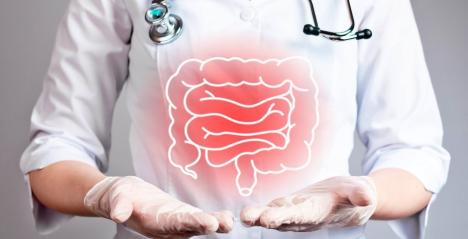Many health problems affect men and women, but some conditions are exclusive to women. Gaining knowledge about women's most prevalent health concerns and how the conditions evolve throughout a woman's life is a positive step toward taking control of your health. The knowledge also helps you to avoid illness, maintain good health, and flourish.
Women's health issues may be affected by several factors, including age, genetics, and lifestyle. However, your susceptibility to developing certain diseases depends on your genetic makeup. Here are some common health issues affecting women and risk reduction strategies. The image source is Pexels.
Stroke
Women account for 55,000 more cases of stroke each year compared to males. Ischemic strokes, caused by the obstruction of a blood artery, and Hemorrhagic strokes, caused by brain bleeding, are the two main categories of this condition. Primary stroke symptoms include speech problems and tingling or numbness in the limbs, although other symptoms might appear depending on the underlying cause. Stroke is also associated with pregnancy. Increased risk of stroke is associated with preeclampsia, a disorder characterized by elevated blood pressure during pregnancy.
Uterine Fibroids
Non Cancerous uterine growths called fibroids, or leiomyomas, are frequent throughout a woman's reproductive years. You may develop multiple growths, ranging in size from little growths to substantial masses that make you gain weight. Most fibroid tumors are identified incidentally during routine pelvic examinations or ultrasounds. However, bigger fibroids may cause extremely severe bleeding, which may be unpleasant and disrupt your daily life. Also, depending on the location and size of the growth, you may undergo a removal procedure; the fibroids can also impair fertility. Nonetheless, you can seek uterine fibroid treatment in Memphis, TN, and access uterine artery embolization UAE. It is a successful therapy for uterine fibroids, which is less invasive than surgery and is linked to shorter hospital stays.
Menstruation Issues
Problems with menstruation, such as abnormally heavy or light flow, excruciating cramps, skipping periods, or irregular cycles, are pretty frequent among women. Excessive menstrual bleeding symptoms include losing more than 80 ml of blood during your period or if your period lasts more than seven days. Heavy periods affect 9 to 14 women out of every 100. Extreme occurrences of heavy menstruation may lead to iron deficiency anemia and significantly impact everyday living. If you experience significant monthly bleeding, you should see a doctor.
Heart Disease
Despite popular belief, heart disease is just as prevalent among women as it is among males. Your likelihood of developing heart disease grows if you are overweight, smoke, or lead a sedentary lifestyle. Although genetics have a role in heart disease risk, various lifestyle factors, such as not smoking, eating well, and exercising regularly, can significantly lower this risk.
Urinary Tract Infections
When bacteria invade the urethra and begin to grow, it leads to a urinary tract infection. UTI infections are more common in women because women's urethras are shorter than men's. It shortens the path bacteria take to infiltrate the bladder. Cloudy urine, discomfort or burning while peeing, and a need to urinate often are all indicators of a urinary tract infection. A UTI can heal independently, but a doctor may prescribe antibiotics if it doesn't.
Depression
New research indicates that women are more likely to suffer from anxiety and depression. According to WHO, suicide is the most significant cause of death for women under 60, and depression is the most prevalent mental health issue for women. Depression is a severe mental health condition that lasts longer than two weeks and causes significant impairment in your everyday functioning. The condition often occurs due to changes in hormone levels during pregnancy, menstrual periods, and the onset of menopause. Genetics, marital strife, long-term health issues, traumatic experiences, parental neglect, and childhood abuse can also increase vulnerability. Although most individuals need therapy, non-medical approaches like regular exercise may also assist.
Osteoporosis
Osteoporosis makes your bones brittle and more prone to fractures. Women beyond menopause are more likely to have osteoporotic fractures. Moreover, certain drugs, a low body mass index BMI, early menopause, cancer therapy, and genetics may increase your risk. However, you may reduce these risks by consuming enough calcium, working out, and abstaining from smoking and heavy alcohol.
Conclusion
Protecting your health and maintaining your physical fitness is crucial. Maintain a healthy weight with regular exercise, a nutritious diet, stress reduction techniques, and routine medical visits. Seeing your doctor for regular checkups and wellness exams is essential even if you feel well. Since your doctor can assess your general health, advise on preventing future sickness, and prescribe any necessary medications.










